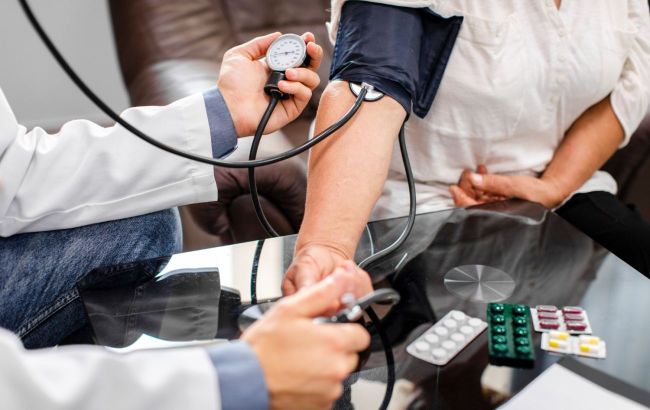5 vitamins and supplements you shouldn't take with high blood pressure
 Supplements that should be avoided with high blood pressure (photo: Freepik)
Supplements that should be avoided with high blood pressure (photo: Freepik)
High blood pressure is a serious condition that requires a careful approach to lifestyle and nutrition. Many people, trying to strengthen their health, take various dietary supplements, unaware that some of them can make the situation worse, reports Eating Well.
Bitter orange
Bitter orange extract, derived from the dried peel of the fruit, is often used in supplements marketed for weight loss and athletic performance.
However, for people with high blood pressure, this extract can pose a serious threat.
Cardiologist Columbus Batiste explained that this supplement contains synephrine, which can raise blood pressure and cause dangerous heart rhythms.
Prolonged use of bitter orange can increase systolic blood pressure (the upper number) by 6 mm Hg and diastolic (the lower number) by 4 mm Hg.
This supplement can also raise the risk of serious complications such as heart attack and stroke.
Licorice root
Licorice root, known for its distinct sweet taste and soothing properties, has traditionally been used as an herbal remedy for digestive issues, viral infections, and sore throat relief.
However, if you have high blood pressure, it’s better to avoid supplements with licorice or products that contain it as an additive. That’s because licorice contains glycyrrhizic acid – a compound that can make the body retain sodium, potentially raising blood pressure.
Research has shown that even small doses of licorice root containing just 100 milligrams of glycyrrhizic acid can significantly raise blood pressure with regular consumption.
Caffeine-containing supplements
Caffeine isn’t just found in your morning coffee or afternoon tea. It’s also a common ingredient in many supplements aimed at boosting energy, alertness, and physical performance.
This popular stimulant can cause a temporary spike in blood pressure, making it a risky choice for people with hypertension.
Even a small increase of about 2 mm Hg can impact heart health in those at high risk.
In addition to caffeine listed on supplement labels, keep an eye out for guarana. This caffeine-rich ingredient is often found in energy supplements and drinks, and it also increases heart rate and blood pressure.
Yohimbine
Yohimbine, a compound found in the bark of the yohimbe tree, is commonly used in supplements and teas marketed for weight loss, athletic performance, and sexual health.
However, this stimulant can dangerously raise blood pressure and heart rate. The supplement increases blood pressure by boosting hormone levels and norepinephrine.
Ephedra
Ephedra is a herbal dietary supplement that has been used for centuries as a natural remedy for colds, headaches, coughs, and fevers, especially in China and India.
This plant contains ephedrine alkaloids – powerful stimulants associated with high blood pressure, heart attacks, strokes, and even sudden death.
It can also interfere with blood pressure and heart medications, making them less effective.
Nutrition and lifestyle strategies for healthy blood pressure
Keeping your blood pressure in check isn’t just about avoiding certain supplements. For example, quitting smoking and limiting alcohol are proven ways to reduce the risk of hypertension.
Follow the DASH diet
The DASH diet has a long-standing track record of lowering blood pressure. Focus on fruits, vegetables, whole grains, beans, nuts, seeds, fish, lean meats, and low-fat dairy products.
Exercise regularly
To improve blood pressure, aim for at least 150 minutes of moderate aerobic exercise or 75 minutes of vigorous aerobic activity per week.
Prioritize sleep
Sleep also affects blood pressure. Try to get between seven and nine hours of sleep each night. If you snore or stop breathing during the night, you may have sleep apnea – a hidden cause of high blood pressure.
This material is for informational purposes only and should not be used for medical diagnosis or self-treatment. Our goal is to provide readers with accurate information about symptoms, causes, and methods of detecting diseases. RBС-Ukraine is not responsible for any diagnoses that readers may make based on materials from the resource. We do not recommend self-treatment and advise consulting a doctor in case of any health concerns.

